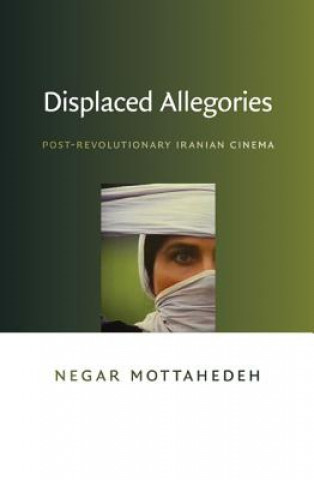
Livrare
Consilier de cumpărături





Nu se pretează? Nu contează! La noi puteți returna bunurile în 30 de zile
 Voucher cadou
orice valoare
Voucher cadou
orice valoare
Cu un voucher cadou nu veți da greș. În schimbul voucherului, destinatarul își poate alege orice din oferta noastră.
Displaced Allegories
 engleză
engleză
 73 b
73 b
30 de zile pentru retur bunuri
Ar putea de asemenea, să te intereseze


Following the 1979 Iranian Revolution, in order to conform with the Islamic Republic's system of modesty, Iran's film industry was required to ensure that Iranian women who appeared on-screen were veiled from the view of men, both on-screen and off. This prohibition prevented Iranian filmmakers from relying on the desiring gaze, a staple cinematic system of looking. In "Displaced Allegories", Negar Mottahedeh shows that post-Revolutionary Iranian filmmakers were forced to create a new visual language for conveying meaning to audiences. She argues that the Iranian film industry found new creative ground not in the negation of government regulations but in the camera's adoption of the modest, averted gaze. The filmic techniques and cinematic technologies were gendered feminine in the process; the national cinema was produced as a woman's cinema.Mottahedeh asserts that, in response to the prohibitions against the desiring look, a new narrative cinema emerged as the displaced allegory of the constraints on the post-Revolutionary Iranian film industry. Allegorical commentary was not developed in the explicit content of cinematic narratives but through formal innovations. Offering close readings of the work of the nationally popular and internationally renowned Iranian auteurs Bahram Bayza'I, Abbas Kiarostami, and Mohsen Makhmalbaf, Mottahedeh illuminates the formal codes and conventions of post-Revolutionary Iranian films. She insists that such analyses of cinema's visual codes and conventions are crucial to the study of international film. As Mottahedeh points out, the discipline of film studies has traditionally seen film as a medium that communicates globally because of its dependence on a (Hollywood) visual language assumed to be universal and legible across national boundaries."Displaced Allegories" demonstrates that visual language is not necessarily universal; it is sometimes deeply informed by national culture and politics.
Informații despre carte
 engleză
engleză
Categorii




 Cum să cumpăr
Cum să cumpăr

































